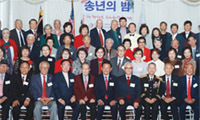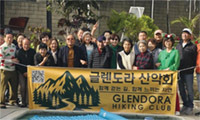67% of Koreans Have Antipathy Toward Rich
Staff Reporter
About 67.4 percent of Koreans harbor negative sentiment toward rich people, while 62.2 percent have antipathy toward the owners of corporations, according to a Gallup survey.
The survey showed that Korean public’s antipathy toward the rich and owners of large corporations, rather than the antagonism toward chaebol itself, is deepening anti-corporate sentiment.
According to the survey conducted by the commission of the Federation of Korean Industries (FKI), public disapproval of conglomerates (42.6 percent), both small and big firms (39 percent) and small- and medium-sized enterprises (28.3 percent) was milder, the survey showed.
The survey involved 800 citizens aged between 20 and 59, 150 opinion leaders, including professors and activists with non-governmental organization, and 114 corporate executives.
Public approval of chaebol shot up by 13.5 percentage points to 57.4 percent from the results of a similar survey in May 2003. In contrast, public approval for the owners of corporations fell by 6.3 percentage points to 37.8 percent.
``The higher public approval of conglomerates can be ascribed to a positive evaluation of chaebol’s role in creating jobs and their ethical management,’’ Park Byung-jin, an FKI manager, said. ``Negative public sentiment toward the owners of corporations can mainly be attributed to the widening income gap between the rich and the poor,’’ he added.
The 800 Korean citizens picked job creation (24.4 percent), contribution to national and social development (21.6 percent) and profit maximization (20.1 percent) as the chief tasks of corporations.
Among corporate executives, 66.7 percent said anti-corporate sentiment in Korea is still at a serious level.
Only 15.8 percent of the corporate executives said they believe anti-corporate sentiment in Korea had eased from a year earlier, while 32.5 said they feel public hostility toward corporations has intensified.
Executives said they sensed anti-corporate sentiment from hostile labor-management relationships (42.1 percent), caustic reports in news media (26.3 percent) and regulatory corporate policies of the government (14.9 percent).
``The FKI will seek ways to alleviate public antipathy toward the rich and owners of corporations as resolving conflict between the rich and the poor is required for Korea to grow into a developed economy,’’ Kim Suk-joong, an FKI vice president, said.
``We will kick off a nationwide noblesse oblige campaign and promote the education of basic principles of the market economy to promote public understanding of the role of corporations,’’ Kim said.
sjkim@koreatimes.co.kr
스마터리빙
more [ 건강]
[ 건강]이제 혈관 건강도 챙기자!
[현대해운]우리 눈에 보이지 않기 때문에 혈관 건강을 챙기는 것은 결코 쉽지 않은데요. 여러분은 혈관 건강을 유지하기 위해 어떤 노력을 하시나요?
 [ 건강]
[ 건강]내 몸이 건강해지는 과일궁합
 [ 라이프]
[ 라이프]벌레야 물럿거라! 천연 해충제 만들기
 [ 건강]
[ 건강]혈압 낮추는데 좋은 식품
[현대해운]혈관 건강은 주로 노화가 진행되면서 지켜야 할 문제라고 인식되어 왔습니다. 최근 생활 패턴과 식생활의 변화로 혈관의 노화 진행이 빨라지고
사람·사람들
more
[송년 행사] 이승만 기념사업회
이승만 건국대통령 기념사업회(회장 박요한)가 지난 18일 시티 뱅큇 홀에서 송년회를 개최했다. 이날 행사에서는 장혜숙, 장준구, 이형숙, 이하…

[송년 행사] 글렌도라 산악회
글렌도라 산악회(회장 임영빈)가 연말을 맞아 안재원 회원에게 창립 공로상을 수여하고 뜻깊은 연말모임을 가졌다. 글렌도라 산악회는 매주 토요일 …
유기견 구조비행 중 사망한 한인… 봉사자들 1주기…
버지니아주 시골의 한 비행장에 착륙한 경비행기에서 내린 개 13마리와 고양이 3마리는 어리둥절하거나 주변을 경계하는 모습이었다. 일부는 신나 …
[송년 행사] 안성향우회
경기도 안성향우회(회장 한효동)가 지난 28일 LA 작가의 집에서 정기총회 및 송년모임을 개최했다. 이날 모임에는 40여 명의 회원들이 참석했…
LA 문화원, 한글 문화상품 전시회
LA 한국문화원이 국립한글박물관과 공동으로 한글을 이용한 다양한 제품들을 전시하는 행사를 지난 22일부터 문화원 1층 상설 전시장에서 진행하고…
많이 본 기사
- 케네디家 또 비극…케네디 외손녀 35세에 희귀암으로 별세
- 캘리포니아 ‘억만장자세’ 추진에 빅테… 1
- 한동훈 “가족이 尹부부 비판 글 올린… 1
- 연준 ‘12월 금리인하, 아슬아슬한 결정’…내부 이견 부각
- 멕시코, 새해부터 韓포함 FTA미체결국에 관세…최대 50%
- 李대통령 6년 만의 방중…관계개선 굳히고 한반도 실마리 풀까
- 최고 시속 85마일 돌풍 분다… ‘강풍주의보’
- 배우 안성기, 어제 심정지 상태 병원 이송…현재 중환자실 위중
- 쿠팡, ‘셀프조사’ 비판에도 미 증권위에 “3천건만 유출” 공시
- 오상욱♥하루카 토요다, 크리스마스에 제주도 갔나? 또 ‘럽스타’ 열애 의혹
- 슬기로운시니어생활 46회
- ‘비트코인 ATM’ 피싱 매년 급증…올해 3억3천350만달러 어치 털려
- 어도어, ‘뉴진스 퇴출’ 다니엘+가족·민희진에 431억 손배소 제기했다
- GCF 뉴저지 지부, 후원의 밤 성황
- 새해 미국 건국 250주년… ‘트럼피즘’ 도전장 받은 민주공화정
- xAI, 새 데이터센터 건물 매입…이름은 MS 겨냥한 ‘매크로하더’
- 트럼프 방관속 美의원들 “中의 대만포위훈련, 의도된 상황악화”
- 뉴욕평통 제22기 임원진 웍샵
- “미군에 쫓기는 ‘유령선단’ 유조선, ‘러시아 국적’ 주장”
- 뷔, 하이브 사옥서 BTS 멤버들과 ‘흥 MAX’ 생일파티.. “내년엔 아미들이랑 보내봅시다”
- 트럼프 이름 덧붙인 ‘트럼프-케네디센터’ 공연 줄취소
- 토트넘 열광 “양민혁 극적 반전, 귀중한 결승골 터뜨렸다”... “믿기지 않는다” 英 현지도 극찬
- “아! 김하성 계약 딱 1년이라니... “ 美 매체 탄식, 왜 A- 호평하고도 아쉬워했나
- 불체 신분 트럭 운전기사 ICE, 가주서 101명 체포
- 셀폰 위치추적, 납치된 딸 살렸다… ‘부모 통제’ 기능 활용
- 식료품 가격 역대급 급등… 식탁 습격 ‘물가 쇼크’
- 메트로카드, 31년만에 역사 속으로
- [2025 SBS 연예대상] ‘대상’ 이상민, 반전 수상에 입틀막 “빚 청산+결혼+대상..어떻게 저 같은 놈이”
- 케이트 오 갤러리 연말연시 특별전
- 백년을 살 것인가? 천년을 살 것인가?
- “미국 CIA, 베네수엘라 영토 내 지상 목표물 첫 타격”
- 내년 1월부터 달라지는 MD 법안들
- [2025 MBC 연기대상] “대체되고 싶지 않아”. ‘언더커버’ 서강준 대상 진심
- 세계 역사를 바꾼 동물
- “혹시 백악관 열쇠?”…李대통령, 트… 1
- 2025 워싱턴지역 10대 뉴스
- 한인 여성 “병가 후 장애 이유 차별·해고” 소송
- 매머드 스키장 ‘눈사태’ 1명 사망
- “교실 아날로그 시계 못읽어요”
- “주방용 가스 스토브 암 유발할 수도… 1
- LA 한인타운서 30대 여성 3주째 실종
- 미국 20대 43% “틱톡으로 뉴스 본다”…유튜브·인스타 제쳐
- 라커펠러센터 인근서 20대 남성 자신의 가슴에 총쏴
- 미·중 쌍두마차… 한국 수출 7,000억달러 첫 돌파
- 가주·전국 전기요금, 내년에도 가파른 상승
- 성탄절 저녁 페어팩스서 자동차 사고로 8명 사상
- 숙행 누구..나이 46세·상간 의혹에 댓글창 폐쇄·’미스트롯’ 6위
- 코스코 실적 호조… 매출 8.2% 증가
- 에어프레미아, 국제선 운항 신뢰성 최저
- 이란, 트럼프-네타냐후 회담 직후 “당신들은 우리 못 꺾소”
1/5지식톡

-
 미 육군 사관학교 West Poin…
0
미 육군 사관학교 West Poin…
0https://youtu.be/SxD8cEhNV6Q연락처:wpkapca@gmail.comJohn Choi: 714-716-6414West Point 합격증을 받으셨나요?미 육군사관학교 West Point 학부모 모…
-
 ☝️해외에서도 가능한 한국어 선생님…
0
☝️해외에서도 가능한 한국어 선생님…
0이 영상 하나면 충분합니다!♥️상담신청문의♥️☝️ 문의 폭주로 '선착순 상담'만 진행합니다.☎️ : 02-6213-9094✨카카오톡ID : @GOODEDU77 (@골뱅이 꼭 붙여주셔야합니다…
-
 테슬라 자동차 시트커버 장착
0
테슬라 자동차 시트커버 장착
0테슬라 시트커버, 사놓고 아직 못 씌우셨죠?장착이 생각보다 쉽지 않습니다.20년 경력 전문가에게 맡기세요 — 깔끔하고 딱 맞게 장착해드립니다!장착비용:앞좌석: $40뒷좌석: $60앞·뒷좌석 …
-
 식당용 부탄가스
0
식당용 부탄가스
0식당용 부탄가스 홀세일 합니다 로스앤젤레스 다운타운 픽업 가능 안녕 하세요?강아지 & 고양이 모든 애완동물 / 반려동물 식품 & 모든 애완동물/반려동물 관련 제품들 전문적으로 홀세일/취급하는 회사 입니다 100% …
-
 ACSL 국제 컴퓨터 과학 대회, …
0
ACSL 국제 컴퓨터 과학 대회, …
0웹사이트 : www.eduspot.co.kr 카카오톡 상담하기 : https://pf.kakao.com/_BEQWxb블로그 : https://blog.naver.com/eduspotmain안녕하세요, 에듀스팟입니다…
케이타운 1번가
오피니언
 문태기 OC지국장
문태기 OC지국장 한인 정치력 업그레이드 기대
 민경훈 논설위원
민경훈 논설위원세계 역사를 바꾼 동물
 박홍용 경제부 차장
박홍용 경제부 차장 한인사회가 주목해야 할 새해 경제
 박영실 시인·수필가
박영실 시인·수필가 [화요칼럼] 피드백
 양홍주 / 한국일보 논설위원
양홍주 / 한국일보 논설위원 [지평선] 독재자도 사로잡은 비만치료제
 오인태
오인태 ‘그런 날’
 옥세철 논설위원
옥세철 논설위원2025년의 최대 패배자(Loser of The Year 2025)는?

세밑의 단상(斷想)
 메건 매카들 워싱턴포스트 칼럼니스트
메건 매카들 워싱턴포스트 칼럼니스트 [메건 매카들 칼럼] 역차별 당하는 젊은 백인 남성들
1/3지사별 뉴스

메트로카드, 31년만에 역사 속으로
1994년 처음 등장해 지난 31년간 뉴욕시 전철과 버스 승차권으로 쓰인 메트로카드가 31일을 끝으로 역사 속으로 사라진다. 더 이상 메트로카…
■ 사고- 한동대·뉴욕한인청소년센터 국제여름캠프

2025 워싱턴지역 10대 뉴스
다사다난했던 2025년이 하루만 남겨둔 채 역사의 저편으로 저물고 있다. 올해의 가장 큰 뉴스는 트럼프 2기 행정부 출범과 함께 몰아친 이민 …
내년 1월부터 달라지는 MD 법안들

셀폰 위치추적, 납치된 딸 살렸다… ‘부모 통제’ 기능 활용
스마트폰에서 자녀의 위치를 확인할 수 있는 ‘부모 통제(parent control)’ 위치 추적 기능의 도움으로 납치됐던 청소년들이 잇달아 구…
[새해부터 이렇게 달라진다] 최저임금 또 오르고… 유급 병가는 더 확대

오늘 하루 이 창 열지 않음 닫기 


















































.png)


댓글 안에 당신의 성숙함도 담아 주세요.
'오늘의 한마디'는 기사에 대하여 자신의 생각을 말하고 남의 생각을 들으며 서로 다양한 의견을 나누는 공간입니다. 그러나 간혹 불건전한 내용을 올리시는 분들이 계셔서 건전한 인터넷문화 정착을 위해 아래와 같은 운영원칙을 적용합니다.
자체 모니터링을 통해 아래에 해당하는 내용이 포함된 댓글이 발견되면 예고없이 삭제 조치를 하겠습니다.
불건전한 댓글을 올리거나, 이름에 비속어 및 상대방의 불쾌감을 주는 단어를 사용, 유명인 또는 특정 일반인을 사칭하는 경우 이용에 대한 차단 제재를 받을 수 있습니다. 차단될 경우, 일주일간 댓글을 달수 없게 됩니다.
명예훼손, 개인정보 유출, 욕설 등 법률에 위반되는 댓글은 관계 법령에 의거 민형사상 처벌을 받을 수 있으니 이용에 주의를 부탁드립니다.
Close
x